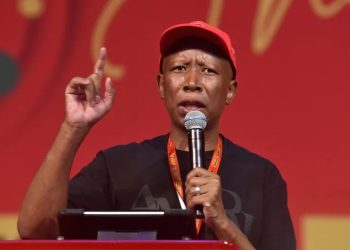Unverified reports have surfaced alleging significant internal strife and financial grievances within the MK Party, led by former president Jacob Zuma. The party, initially heralded as a vehicle for Zuma’s political resurgence, is reportedly facing allegations of mismanagement, growing factionalism, and declining support.
FINANCIAL GRIEVANCES AND BROKEN PROMISES
Claims suggest that some of the MK Party’s founding supporters took out personal loans to finance the party’s establishment, reportedly based on assurances of reimbursement. These individuals are now said to be burdened with debt and excluded from the party’s operations. Zuma himself has allegedly cut communication with some of these early backers, fueling accusations of abandonment.
Adding to the controversy, reports claim that funds were solicited under misleading pretenses, leading to the withdrawal of support from some traditional and religious leaders.
LEADERSHIP STYLE AND FACTIONALISM
Critics have pointed out parallels between the alleged factionalism within the MK Party and Zuma’s controversial leadership style during his tenure as president of the African National Congress (ANC). Allegations of infighting and growing distrust among party members suggest that these challenges may be rooted in leadership practices that prioritize loyalty over cohesion.
INFLUX OF CONTROVERSIAL FIGURES
The integration of figures linked to state capture, such as Mzwanele Manyi, is said to have deepened divisions within the MK Party. Manyi’s close association with Zuma has reportedly alienated some members, who view his involvement as exacerbating the party’s woes.
TENSIONS WITH KEY ALLIES
There are additional unverified claims regarding tensions between Zuma and Advocate Dali Mpofu, a prominent figure in South Africa’s legal and political spheres. Though details remain unclear, these tensions, if true, could signal further fractures within Zuma’s inner circle.
QUESTIONS ABOUT THE MK PARTY’S FUTURE
The MK Party, launched with significant fanfare, now faces questions about its viability. Allegations of internal chaos and financial mismanagement have cast doubt on Zuma’s ability to steer the party toward stability and growth.
Observers note that these challenges mirror broader patterns in South African politics, where factionalism and financial impropriety have often plagued new political movements. While the allegations remain unproven, they underscore the difficulties faced by the MK Party in establishing itself as a credible alternative to the ANC.
As scrutiny grows, the MK Party’s leadership will need to address these claims decisively if it hopes to maintain relevance in South Africa’s rapidly shifting political landscape. Whether Zuma can rise to this challenge, or if these allegations will further erode his political standing, remains to be seen.






















